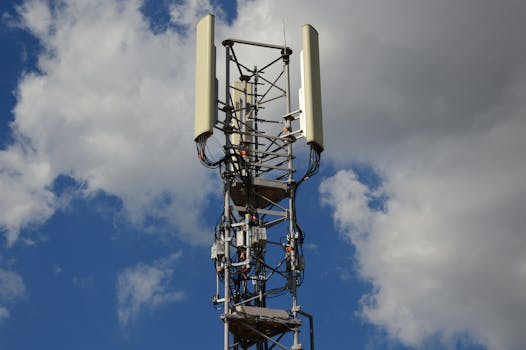5G Technology Advancements and Impact on Mobile Networks

5G technology is revolutionizing the way we communicate and access information on the go. With its ultra-fast data speeds, low latency, and massive connectivity, 5G is poised to transform the mobile network landscape. As we delve into the world of 5G, it’s essential to understand the latest advancements in this technology and their impact on mobile networks.
5G technology is the fifth generation of wireless communication technologies, designed to provide faster data speeds, lower latency, and greater connectivity than its predecessors. The key features of 5G include speeds of up to 20 Gbps, latency as low as 1 ms, and the ability to support a vast number of devices. These features make 5G an attractive technology for various applications, including enhanced mobile broadband, mission-critical communications, and massive machine-type communications.
The latest 5G technology advancements are focused on improving the performance, capacity, and efficiency of mobile networks. One of the significant advancements is the development of new radio access technologies, such as millimeter wave (mmWave) and sub-6 GHz. These technologies offer faster data speeds, lower latency, and greater connectivity, making them ideal for applications such as online gaming, virtual reality, and augmented reality.
Another significant advancement in 5G technology is the development of network slicing. Network slicing allows multiple independent networks to run on top of a shared physical infrastructure, each with its own set of optimized resources and settings. This feature enables mobile network operators to provide customized services to different users, such as high-speed data for gamers and low-latency connectivity for mission-critical communications.
The impact of 5G technology on mobile networks is significant. With its faster data speeds and lower latency, 5G is enabling new use cases such as enhanced mobile broadband, mission-critical communications, and massive machine-type communications. For instance, 5G is being used to support smart city initiatives, such as intelligent transportation systems, smart energy management, and public safety applications.
5G is also transforming the way we access information on the go. With its ultra-fast data speeds, 5G is enabling the widespread adoption of online services, such as video streaming, online gaming, and social media. Moreover, 5G is enabling new business models, such as mobile cloud computing, which allows users to access cloud-based services and applications on their mobile devices.
As 5G technology continues to evolve, we can expect to see significant advancements in the coming years. One of the key areas of focus is the development of standalone (SA) 5G networks, which will provide even faster data speeds and lower latency than current non-standalone (NSA) 5G networks. Another area of focus is the development of 5G-based IoT services, which will enable the widespread adoption of IoT applications in various industries.
In conclusion, 5G technology is transforming the mobile network landscape, offering faster data speeds, lower latency, and greater connectivity. The latest 5G technology advancements, such as new radio access technologies and network slicing, are improving the performance, capacity, and efficiency of mobile networks. As 5G continues to evolve, we can expect to see significant advancements in the coming years, enabling new use cases and business models that will transform the way we communicate and access information on the go.
The future of 5G technology is exciting and full of possibilities. As mobile network operators continue to invest in 5G infrastructure, we can expect to see widespread adoption of 5G services and applications. With its ultra-fast data speeds, low latency, and massive connectivity, 5G is poised to revolutionize the way we live, work, and communicate.



